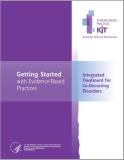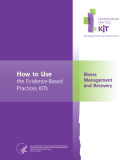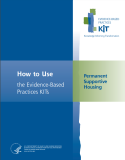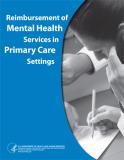
This kit provides practice principles for supported employment, an approach to vocational rehabilitation for people living with serious mental illness. The kit promotes the belief that everyone living with serious mental illness is capable of working competitively in the community.
Units per Product
Download
How to Use the EBP KIT
File Type: PDF
File Size: 357 KB
Getting Started with EBPs
File Type: PDF
File Size: 455 KB
Building Your Program
File Type: PDF
File Size: 1.44 MB







